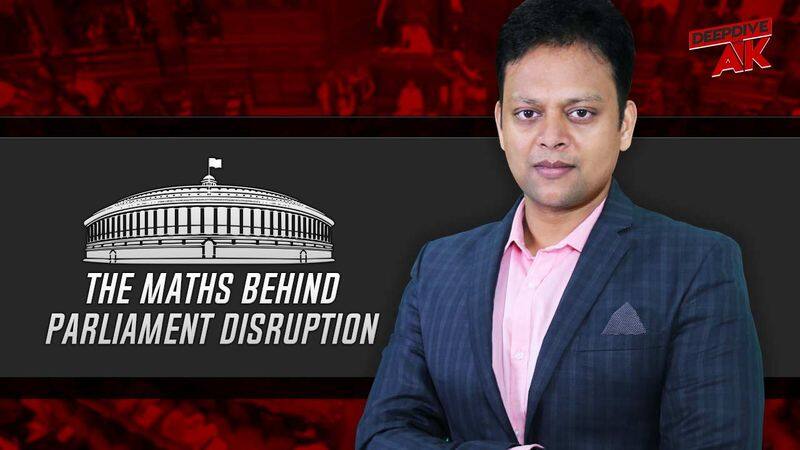Abhinav Khare deep dives into the constant disruptions in Parliament and the money that is wasted when MPs resort to petty politics and destruction during costly proceedings that are aimed at the development of the nation
Our parliamentary sessions are often disrupted. Interruptions to parliamentary proceedings have always been a topic of hot discussion in the media. But, the question that people fail to ask is why is the hard earned money of Indian taxpayers wasted by the hooliganisms of our MPs? Are we aware how much these disruptions actually cost the taxpayers?
The government pays Rs 388 crore per year on our Members of Parliament. The Lok Sabha has 545 MPs including 2 nominated members from the Anglo Indian Community and the Rajya Sabha has 245 members including 12 distinguished members nominated by the President from different fields. Our parliament has a total of three sessions: Budget, Monsoon and Winter which roughly sums up to around 100 days. This sums up to just Rs 4 crore worth of administrative costs per day of parliament functioning. This, however, does not include the cost involving the President of India, Vice-President of India, bureaucracy and the media involved which runs into many crores. Disrupting the parliament is nothing but a wastage of our taxes. No welfare measures can usually take place in a disrupted parliament and are just a mere burden to the exchequer.
The main issue at hand is our inability to do anything about it. The parliament can pass a law which restricts the time for protests in the parliament. The opposition, no matter which party they belong to have resorted to petty politics and destruction whenever their agendas have failed. In a democracy, the opposition plays an equal role as the government, as they are supposed to direct the government to the right direction and keep them grounded. Unfortunately, the opposition now has turned into a burden for taxpayers. It is now time for us to choose our representatives wisely and not elect those who fail to understand the ethos of Indian democracy.
About Abhinav Khare
Abhinav Khare is the CEO of Asianet News Network and also the host of a daily show named Deep Dive with AK. He has a lifetime collection of books and gadgets and has already pinged more than hundred cities around the globe.
He is a tech entrepreneur, who is passionate about policy, technology, economy and philosophy from ancient India. He earned an MS Engineering from the ETH Zurich and an MBA Finance from the London Business School.
Last Updated Nov 29, 2019, 7:58 PM IST












![Salman Khan sets stage on fire for Anant Ambani, Radhika Merchant pre-wedding festivities [WATCH] ATG](https://static-ai.asianetnews.com/images/01hr1hh8y86gvb4kbqgnyhc0w0/whatsapp-image-2024-03-03-at-12-24-37-pm_100x60xt.jpg)
![Pregnant Deepika Padukone dances with Ranveer Singh at Anant Ambani, Radhika Merchant pre-wedding bash [WATCH] ATG](https://static-ai.asianetnews.com/images/01hr1ffyd3nzqzgm6ba0k87vr8/whatsapp-image-2024-03-03-at-11-45-35-am_100x60xt.jpg)


